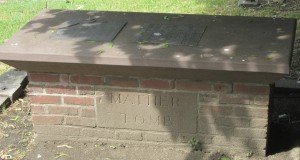 One of the more surprising repercussions of Atlantic piracy during the 17th and 18th centuries was the tendency of Puritan leaders to drag sensational stories about pirates and their captives — and sometimes the pirates themselves — into the pulpit. The exploits of pirates and the adventures of captives who returned safely home were used time and again by religious leaders who wanted to illustrate stark warnings against a sinful lifestyle. Nobody in colonial America did this more forcefully than Cotton Mather.
One of the more surprising repercussions of Atlantic piracy during the 17th and 18th centuries was the tendency of Puritan leaders to drag sensational stories about pirates and their captives — and sometimes the pirates themselves — into the pulpit. The exploits of pirates and the adventures of captives who returned safely home were used time and again by religious leaders who wanted to illustrate stark warnings against a sinful lifestyle. Nobody in colonial America did this more forcefully than Cotton Mather.
The month of February marks the anniversaries of Mather’s birth (February 12, 1663) and his death (February 13, 1728). During his long lifetime, Mather offered counsel to a long line of condemned pirates, ranging from Captain William Kidd in the year 1700 to William Fly, who was executed in Boston several decades later, in 1726. Mather and other Puritan leaders saw piracy as a vivid symbol of everything that was wrong with colonial New England at a time of deteriorating social and religious values — and pirates awaiting execution provided rich, engaging material for sermons. “It was the hand of the Glorious God which brought these criminals to die,” Mather proclaimed in his sermon about the pirates from Edward Low’s crew executed in Newport in 1723. “Take a due notice of what you have seen in the way which these wicked men have trodden, and in the fearful end in which their way has brought them to.”
Mather died in 1728 and is buried in Copp’s Hill Burying Ground in Boston’s North End.






